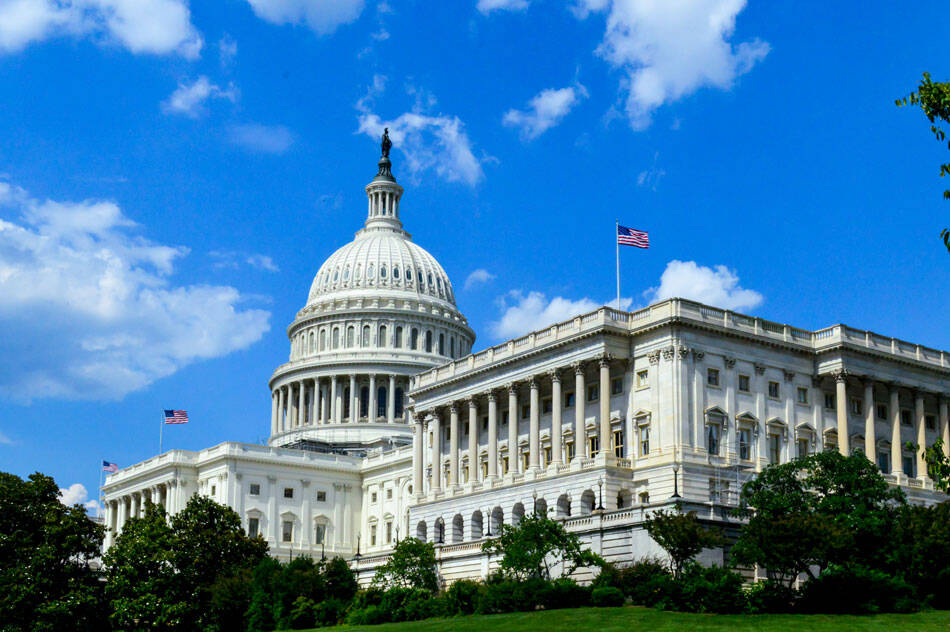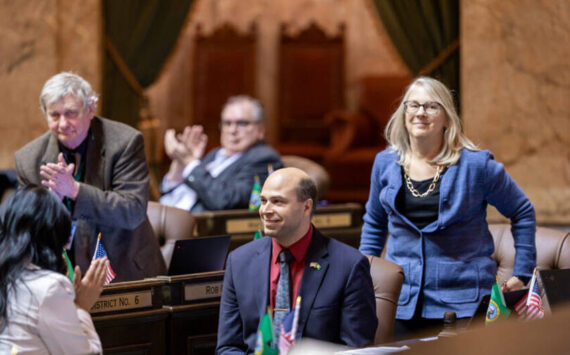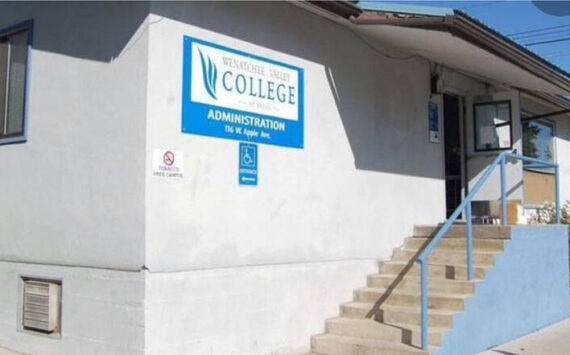Randy Bracht | The Center Square
(The Center Square) – Washington state’s entire congressional delegation on Saturday voted in favor of legislation that will temporarily continue federal government funding through mid-November.
The nation’s 2023 fiscal year expired at the end of Saturday. Shortly before the clock ticked down, the stopgap measure – called a clean continuing resolution – was signed by President Joe Biden and now avoids a government shutdown by largely extending existing funding for another 45 days.
It remains to be seen whether the recent political drama will continue in the House of Representatives – where a small cadre of conservative Republicans remain at odds with Speaker Kevin McCarthy and some may seek his ouster – or if bipartisan majorities emerge in both the House and Senate to pass their respective 12 appropriation bills by Nov. 17 for the full 2024 fiscal year.
In floor comments Saturday, U.S. Sen. Patty Murray, D-Wash., who chairs the Senate Appropriations Committee, said passage of McCarthy’s last-minute proposal avoided “a senseless government shutdown, one that House Republicans have been pushing us toward for weeks.”
The measure does not include new spending cuts or policy changes. In the House, the short-term funding bill passed, 335-91, with support from 209 Democrats and 126 Republicans. The Senate approved the measure, 88-9, with a small group of Republicans in opposition.
Among Washington state’s congressional delegation posting online comments shortly afterward were Democratic U.S. Representatives Suzan DelBene, Derek Kilmer, Pramila Jayapal, and Marie Gluesenkamp Perez.
“While House Democrats held the line and avoided a worst-case scenario, Speaker McCarthy will confront the same reality in 45 days,” said DelBene, from the northeast Puget Sound’s 1st District. “House Republicans must use this time to work with Democrats and the Senate to reach a bipartisan path forward to fund the federal government for the entire fiscal year. They must abandon extreme Republican policy riders and harmful program cuts and include funding that supports Ukraine.”
Gluesenkamp Perez called the bill a “temporary, imperfect solution,” but said she voted yes because “It’s the basic job of Congress to fund our government – it’s the lowest bar for a functioning democracy.”
Gluesenkamp Perez, from southwest Washington’s 3rd District, said she supported the Problem Solvers Caucus bipartisan framework to avert a shutdown. Last week, she also introduced two bipartisan bills that would “ensure lawmakers face the daily costs of a needless shutdown.”
Kilmer, from Gig Harbor and the 6th District, also called the bill “imperfect,” but necessary. “In the weeks ahead, I intend to push hard for Congress to stop kicking the can and pass a bipartisan budget consistent with the agreement made by Democrats and Republicans back in May. There is no excuse for continued brinkmanship and chaos. The American people deserve better,” said Kilmer.
Some House Republicans are upset with McCarthy over higher funding levels that he agreed to with President Biden earlier this year. Democrats, in turn, were upset that McCarthy did not stick to the agreement.
On Friday, the House rejected a McCarthy proposal which would have cut many domestic programs by 30% in a 198-232 vote that included all Democrats and 21 hard-right Republicans in opposition. Democrats argued the measure was socially punitive and would harm the nation’s economy and credit rating while the Republican opponents contended it was not enough to address the current $33 trillion deficit.
With Saturday’s passage of the new funding proposal, Jayapal said, “We held the line against Republicans’ cruel, extreme, and unworkable agenda … and the government will remain open.”
U.S. Rep. Dan Newhouse, R-Wash., said he voted yes on the short-term measure while the House continues to debate its appropriations bills. “As an Appropriator, I’m committed to ensuring fiscal responsibility and passing appropriations bills are the best way to do so,” he said.
Of the state’s 10 congressional House seats, only two are held by Republicans: Newhouse of Sunnyside in central Washington’s 4th District and Rep. Cathy McMorris Rodgers of Spokane in eastern Washington’s 5th District. The delegation also includes U.S. Sen. Maria Cantwell and Reps. Rick Larsen, Kim Schrier, Adam Smith, and Marilyn Strickland, all Democrats from western Washington.
The lone House Democrat to oppose Saturday’s stopgap bill was U.S. Rep. Mike Quigley of Illinois, who objected because it did not include monies for Ukraine in that nation’s ongoing war against Russian invasion.
Along with the Biden Administration, Murray is among many Democrats and a majority of Republicans who have supported U.S. assistance to Ukraine. However, a smaller group of Republicans – among them Sen. J.D. Vance of Ohio and Reps. Chip Roy of Texas, Marjorie Taylor Greene of Georgia, and Matt Gaetz of Florida – remain opposed to any aid without more accountability on spending and arguing that money should instead go toward securing the nation’s southern border.
That’s misguided thinking, argued Murray, contending it is in the best interests of the U.S. to help Ukraine.
“First, we have to absolutely do more to support our allies in Ukraine. Dictators across the world are watching,” said Murray. “… It is in America’s national security interests to send a strong message to dictators like Putin that they cannot just invade a sovereign nation and steamroll democracy wherever and whenever they want.”
“And let’s make sure we are crystal clear about this: there are strong bipartisan super majorities in both chambers that have shown they understand that,” said Murray, who had proposed her own continuing resolution to the Senate on Friday that contained a $6 billion appropriation for Ukraine.
Without Saturday’s measure, more than 54,500 federal workers and 62,100 military personnel in Washington state faced furloughs or working without regular pay had the government shut down. Murray said a shutdown would have also delayed federal funding for a variety of other domestic programs and projects, including Head Start preschools, pay for wildland firefighters and military border officers, long-term disaster recovery projects, and loans to businesses and farmers.





